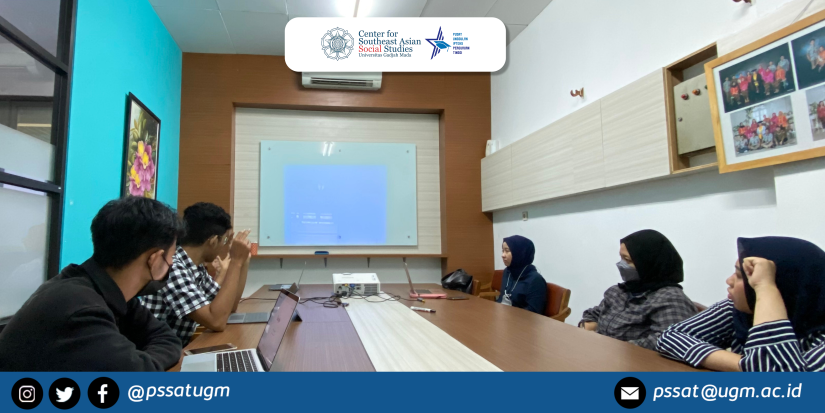
On Tuesday (28/03/2023), an international relation student Gadjah Mada University, named Shynna Nor M. Siawan presented her advocacy project entitled “Provision to ban FGM (Sunat Perempuan) in Indonesia to Global Arena”. The sharing session is part of intern’s activity in Center for Southeast Asian Social Studies Gadjah Mada University. She shared this topic because she want to spread awareness that FGM has become big issue in the world.
At the beginning of her presentation, Shynna said that Female Genital Mutilation (FGM) or Sunat Perempuan is an ancient tradition of removing the female external genitalia (performed on children) with no medical prescription. Commonly, it is happened in islamic countries such as Indonesia, Brunei, Malaysia, Philippines, Africa, ect. They do FGM for some reason like purity, cleanness, and control sexual desire for woman. Unfortunately, This practice has been passed down from generation to generation. Many young women end up practicing FGM because they have been indoctrinated that it is the right thing to do.
In other hand, Shynna said that FGM caused long-term problems for women such as Menstrual problems, psychological trauma, childbirth problem, and loss of female sexual desire. In 2016, Indonesia had tried to ban the practice of FGM but faced protests from several religious organizations. In the end, the practice of FGM was carried out with conditions using medical assistance. In fact, Indonesia does not have clear regulations on FGM. Many practices are still carried out in various regions.
According to Shynna data, 83.7% of Gorontalo People still practice on FGM and about 60 million women have experienced FGM. Based on her research, she has 6 points why this topic is important. First It does not really have much global exposure. Second, it violates sexual and reproductive rights of women. Third, the outcome of the practice is rather harmful, affecting multiple aspects. Fourth, religion as the instrument in upholding the practice until today. Fifth, it has become an intersectional problem that normative in certain communities. Last, it needs to be reevaluated for the existing policy towards FGM (Incremental policy).
Shynna and teams offered some mechanism or provision to ban FGM. They would corporate with various stakeholders including ministries, Islamic organizations, international organizations and campus academics. In the end of the presentation, the audiences were discussed about the pros and contra of FGM. Besides that they also discussed why FGM is not common in some areas and how to prevent it from spreading in other areas.
By: David Safri Anggara
